Latest News
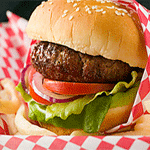
|
Getting Real About the High Price of Cheap Food
Horror stories about the food industry have long been with us - ever since 1906, when Upton Sinclair's landmark novel The Jungle told some ugly truths about how America produces its meat. In the century that followed, things got much better, and in some ways much worse. The U.S. agricultural industry can now produce unlimited quantities of meat and grains at remarkably cheap prices. But it does so at a high cost to the environment, animals and humans. Those hidden prices are the creeping erosion of our fertile farmland, cages for egg-laying chickens so packed that the birds can't even raise their wings and the scary rise of antibiotic-resistant bacteria among farm animals. Add to the price tag the acceleration of global warming - our energy-intensive food system uses 19% of U.S. fossil fuels, more than any other sector of the economy.
|
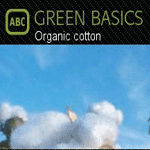
|
Organic Cotton: For Clothing, Baby, Bedding and More
Organic cotton is the version of its conventional counterpart grown without pesticides, herbicides, insecticides, chemical fertilizers or any other chemicals, and that makes it hugely different, especially considering that cotton (organic or otherwise) provides about half of all the world's fiber needs.
Conventional cotton is one of the most chemically-dependent crops, sucking up 10 percent of all agricultural chemicals and 25 percent of insecticides on 3 percent of our arable land; that's more than any other crop per unit. That adds up to 1/3 of a pound of chemicals to produce enough cotton for a t-shirt, and 3/4 of a pound for a pair of jeans. And that's just not bad for
the planet; 20,000 deaths occur each year from pesticide poisoning in developing countries, many of these from cotton farming, according to the World Health Organization (WHO).
|
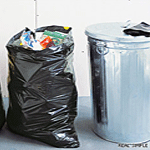
|
Recycling facts that may surprise you
Most plastics are recyclable," says Keith Christman, senior director of packaging at the American Chemistry Council Plastics Division, in Arlington, Virginia.
The problem is, not all plastics are recyclable everywhere.
Almost all recycling programs accept plastics numbered 1 and 2. (Look for the number on the underside of a product, inside the ubiquitous triangle of chasing arrows.)
But the numbers are not regulated federally; 39 states have various rules, so what you see can be inconsistent.
"The plastics industry has put the recycle symbol on everything," says Marti Matsch of Eco-Cycle, in Boulder, Colorado. "People think the symbol means the item is recyclable, but that's not always true." More than a tool for recycling, "the symbol identifies what a certain plastic is made of," Christman says.
|
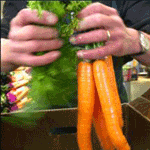
|
New reasons for eating organic?
If you include organic foods in your holiday menu, you'll be in step with the latest food trends, according to industry polls. And you may also be doing your children's health a favor. Parents who feed their children organically grown food can substantially
lower the levels of pesticide residues to which their kids are exposed, according to a new study.
Even before the U.S. Department of Agriculture's "organic" seal went into effect last October, which certifies foods grown free of pesticides, synthetic fertilizers, growth hormones and genetically-engineered substances, Alexandra Ramdin decided to give organic foods a try.
|

|
Organic: A Choice For Our Children
As parents, we want to feed our children healthy food. What parent would turn down the chance to give a child delicious, healthy food that is convenient, a good money value, that the child loves - and then responds with a, "Thank you, Mommy, that was great! May I help clean up?"
In practice, though, many powerful forces determine our food choices. Our children have tasted artificially flavored, partially hydrogenated, day-glow snack foods and clamor for more. Our kids tell us that their friends' "parents let them eat" the latest processed food fashion. Huge sums of money pay for artists, musicians, toy manufacturers, psychologists, and marketers to work together to carefully manipulate your child's food preferences.
|
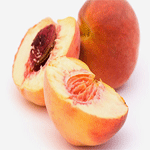
|
Organic Foods Slideshow: To Buy or Not to Buy Organic
Going organic is good for you and the Earth, but if you can't always afford it -- since organic can cost 50%-100% more -- experts recommend spending most of your organic food dollars on produce and the foods you eat most often. The Environmental Working Group, a nonprofit organization in Washington, D.C., recommends going organic on the "dirty dozen" -- produce that has the highest pesticide residues -- like peaches.
|

|
LG's Eco-Laptop Concept
LG Electronics, the second-largest electronics company in Korea, has created a concept eco-laptop
called the e-Book. It uses a biofuel cell, and features organic light-emitting diodes (OLEDs).
OLEDs do not need a frame around them, and they consume less electricity than LCDs. The fuel cells
of the e-Book use natural gas, methanol, and other eco-friendly liquid fuels. The fuel is stored in
a transparent cylindrical hinge.This concept notebook received a Red Dot
Award nomination for "Best Concept Design" for 2006. The keypad will also be made of a singe OLED panel,
like the one used in LG's Chocolate Phone
|
|